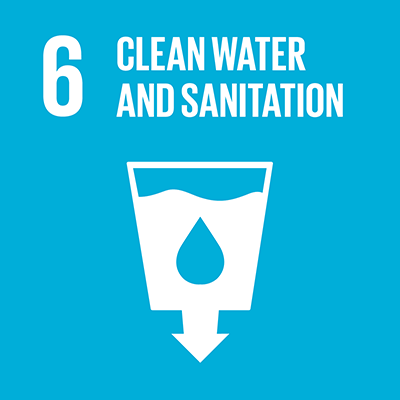31.01.2020 - One of the UN’s Sustainable Development Goals is to achieve universal and equitable access to safe and affordable drinking water for all by 2030 – and VSA has partnered with Engineers Without Borders (EWB) and the Ministry of Infrastructure and Sustainable Energy (MISE) in Kiribati to help achieve this goal in the country.
VSA volunteer, Jules Scott-Hansen, has been on a six month assignment in Kiribati (in 2019/20) as a Water Supply Adviser. Jules is working on implementing a trial project with solar distillation technology. “The goal is to assess whether this technology is viable in Kiribati as an alternative way of producing fresh water,” says Jules. “Kiribati faces many challenges with access to fresh water and this project is aimed at helping communities be more resilient in times of drought and other water shortage situations.”
Improving community resilience by providing access to clean water is a crucial goal of this project. This will ultimately help communities be healthier and have more time and energy to spend on other priorities such as family, work and education.
Kiribati is one of the Pacific nations facing potentially severe climate related impacts, in particular from sea level rise. “There are predictions that Kiribati may disappear under the rising sea by the end of the century,” says Jules. “However, when you see the love and pride the I-Kiribati have for their country, you realise that this is first and foremost their home and all efforts should be made to help them stay here as long as possible.”
Jules works in close collaboration with her colleagues in the Water and Sanitation Engineering Unit (WSEU) as well as the local community. “My colleagues are mostly engineers and several of them are female which is really great to see. We work closely with the local community and arrange meetings with them through their respective Councillors. As I don’t speak much Kiribati my local counterpart is a huge help in translating and engaging with them.”
The work also involves visiting various sites across Kiribati, and each site visit can provide some interesting experiences. For example after a meeting with the Mayor of North Tarawa Jules returned from the meeting across the lagoon in a boat along with the Mayor and his dinner, a huge coconut crab!
“Meetings with the local Mayors are formal in a Kiribati-style so the formalities usually don’t last long,” says Jules. “If you can get someone to laugh in the first five minutes that’s usually a good sign. In true New Zealand fashion I make sure I bring a pack of biscuits along to the meetings which always goes down well!”
Kiribati is different in so many ways to anywhere else Jules has visited before particularly in terms of its culture, remoteness, vulnerability and people. “People here really don’t have much but still seem to be so happy and content,” says Jules.
As for many of our VSA volunteers many of the assignment highlights come from the social connections volunteers make – in Jules’ case playing badminton with colleagues at lunch time or sharing a laugh with someone. “It sounds simple but it actually takes a bit of time for these things to happen as people need to trust you before they open up.”
Catching a few waves on a dinged up old longboard and having a beer while watching the equatorial sunset will go down as some of Jules’ top memories of Kiribati. “I was pleasantly surprised to find that there is a fairly decent surf break right at the back of “Kiwi Alley” where the volunteers live!”

Meeting with the Mayor of North Tarawa

